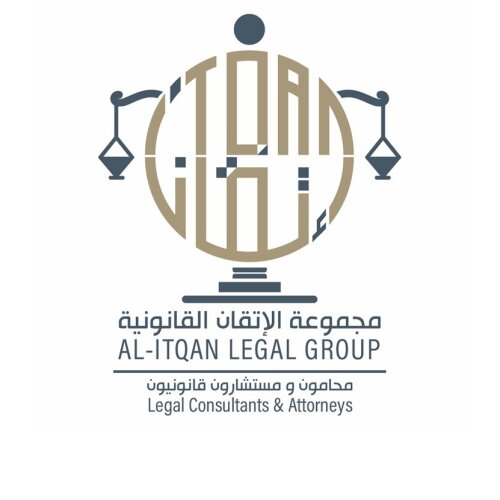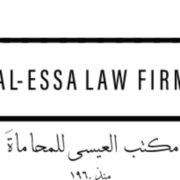Best Banking & Finance Lawyers in Kuwait
Share your needs with us, get contacted by law firms.
Free. Takes 2 min.
Or refine your search by selecting a city:
List of the best lawyers in Kuwait
About Banking & Finance Law in Kuwait
Banking and Finance law in Kuwait is a vital component of the country’s economic framework, addressing the regulation and oversight of money transactions, financial institutions, and broader financial markets. The financial sector is regulated by the Central Bank of Kuwait (CBK), which establishes policies to ensure the safety and stability of the banking system. The industry is governed by a combination of Sharia-compliant principles and conventional banking laws, accommodating both Islamic and international banking. Furthermore, Kuwait is continually modernizing its legal framework to align with global standards and support its role as a finance hub in the Middle East.
Why You May Need a Lawyer
There are several situations where individuals or businesses may require legal assistance in Banking & Finance in Kuwait:
- Contractual Agreements: Negotiating and drafting terms for loans, credits, or other financial contracts often require legal expertise to ensure compliance.
- Regulatory Compliance: Understanding and adhering to the complex web of banking regulations, whether you're a financial institution, corporation, or an individual, can require professional legal support.
- Dispute Resolution: Legal disputes may arise with financial institutions or between parties involved in financial transactions requiring litigation or arbitration.
- Fraud and Financial Crimes: Addressing allegations or defending against charges related to financial fraud, money laundering, or breaches of banking law.
- Investment and Asset Management: Providing guidance on the legalities surrounding investment portfolios, property investment, or asset management strategies.
Local Laws Overview
Kuwait's Banking and Finance regulations are primarily governed by the Central Bank of Kuwait and the Ministry of Finance. Key aspects include:
- Islamic Banking: Following Sharia principles, Islamic banks in Kuwait offer services compliant with Islamic law, including profit-sharing and strict prohibitions on interest (Riba).
- Licensing and Supervision: The CBK supervises licensing and monitors financial institutions to ensure their stability and integrity.
- Anti-Money Laundering (AML): Regulated under the Law No. 106/2013, this involves activities aimed at preventing and penalizing money laundering and terrorism financing.
- Foreign Investment Laws: Governed by the Foreign Direct Investment Law No. 116/2013, promoting foreign investment with certain restrictions to protect local industries.
- Corporate and Tax Law: Includes regulations under the Companies Law No. 1/2016 and harmonization with international tax standards such as BEPS (Base Erosion and Profit Shifting).
Frequently Asked Questions
What is Islamic banking, and how does it differ from conventional banking?
Islamic banking operates under Sharia law, prohibiting interest (Riba) and requiring profit and loss sharing. It emphasizes ethical investments and requires all financial activities to have tangible assets.
Do I need a lawyer to negotiate a loan in Kuwait?
While it's not mandatory, consulting with a lawyer can help ensure the terms are fair, compliant with Kuwaiti law and protect your interests, especially for significant financial commitments.
What is the role of the Central Bank of Kuwait?
The CBK regulates and supervises financial institutions in Kuwait, manages monetary policy, stabilizes the currency, and ensures compliance with financial regulations.
How can I ensure compliance with AML regulations for my business?
Your business should establish internal policies, conduct regular audits, provide staff training, and implement procedures for customer verification and transaction monitoring.
Are there restrictions on foreign investments in Kuwait?
Yes, while the government encourages foreign direct investment, certain sectors are restricted to protect local businesses. It's important to consult the Foreign Direct Investment Law for specifics.
What constitutes a breach of banking regulations in Kuwait?
Breaches range from failing to comply with AML laws, illegal trading, manipulating interest rates, to misinformation or fraudulent representation to customers.
How are financial disputes typically resolved?
Disputes can be resolved through negotiations, mediation, arbitration, or, as a last resort, litigation before the Kuwaiti courts.
What tax obligations exist for banks in Kuwait?
Banks must adhere to corporate tax laws, which apply to foreign and local businesses, including laws under BEPS to prevent tax avoidance.
How does Kuwait handle financial fraud cases?
These cases are handled severely, involving investigative procedures followed by prosecution under the Public Prosecution’s oversight, with harsh penalties for convictions.
What steps can be taken to resolve a default on a loan?
Approaching the lender to renegotiate terms, undergo loan restructuring, or employing legal assistance to mediate and propose feasible repayment solutions can be considered.
Additional Resources
- Central Bank of Kuwait (CBK): The primary regulatory body for banks and financial services.
- Ministry of Finance: Overseeing economic strategy, tax policies, and financial regulations.
- Kuwait Capital Markets Authority (CMA): Regulating investment securities to protect investors.
- Kuwait Investment Authority (KIA): Managing the region’s sovereign wealth funds and investments.
- Local Legal Firms: Specialized in Banking and Financial law offering advisory and representation services.
Next Steps
If you find yourself in need of legal assistance in Banking & Finance in Kuwait:
- Research Reputable Lawyers: Look for firms with expertise in Banking & Finance law. Consider solicitations from your network for recommendations.
- Consult with a Professional: Use initial consultations to discuss your situation, get preliminary advice, and assess if the lawyer is a good fit for your needs.
- Prepare Documentation: Gather all relevant documents, contracts, and correspondence before meetings to provide your lawyer with a comprehensive overview.
- Follow Procedural Steps: Once a lawyer is engaged, follow their guidance on legal processes, including filings, correspondences, and court appearances if necessary.
- Stay Informed: Continually educate yourself on banking and financial laws to make informed decisions and protect your interests.
Lawzana helps you find the best lawyers and law firms in Kuwait through a curated and pre-screened list of qualified legal professionals. Our platform offers rankings and detailed profiles of attorneys and law firms, allowing you to compare based on practice areas, including Banking & Finance, experience, and client feedback.
Each profile includes a description of the firm's areas of practice, client reviews, team members and partners, year of establishment, spoken languages, office locations, contact information, social media presence, and any published articles or resources. Most firms on our platform speak English and are experienced in both local and international legal matters.
Get a quote from top-rated law firms in Kuwait — quickly, securely, and without unnecessary hassle.
Disclaimer:
The information provided on this page is for general informational purposes only and does not constitute legal advice. While we strive to ensure the accuracy and relevance of the content, legal information may change over time, and interpretations of the law can vary. You should always consult with a qualified legal professional for advice specific to your situation.
We disclaim all liability for actions taken or not taken based on the content of this page. If you believe any information is incorrect or outdated, please contact us, and we will review and update it where appropriate.
Browse banking & finance law firms by service in Kuwait
Kuwait Attorneys in related practice areas.
Browse banking & finance law firms by city in Kuwait
Refine your search by selecting a city.
















